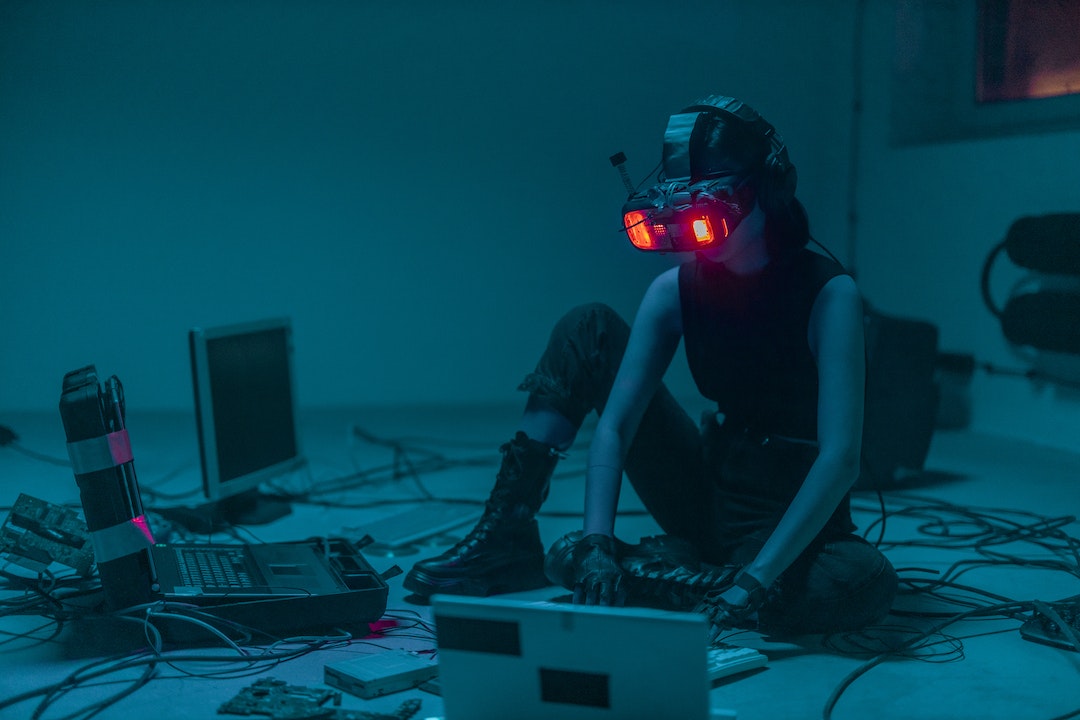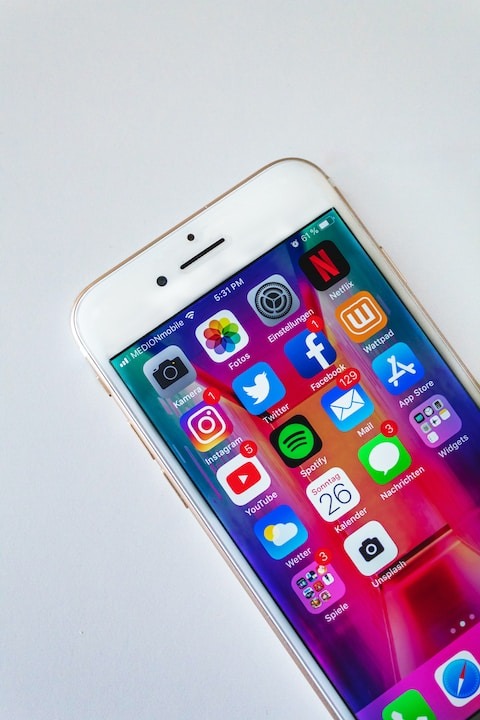
Nowadays, we may hear a new word called “detox” a lot. The word “detox” means removing toxins from the body, which is widely used in nutrition and diets. But here, we will go to the application of detox in the digital field or digital detox (digital detoxification).
What is a digital detox?
Just as using the detox diet is helpful for healthy people and brings them a sense of freshness and vitality, a digital detox is also recommended for everyone. Digital detox or digital detoxification is when technical devices and devices such as smartphones, televisions, computers, and tablets are used to a limited extent or not at all. A digital detox can even be called limiting the use of social networks or refraining from using them.
Detox or digital detox can be considered a safe and simple way to increase focus on social interactions in real life without worrying about neglecting social networks and cyberspace. Because in the period of a digital detox or not using technology devices and social networks that take place on a temporary basis, people can have more control over the stress caused by continuous connection to virtual communication devices and the Internet and reduce their stress level significantly.
Reasons for using digital detox.
According to studies, it has happened to many people being connected and immersed in the digital space has become an essential part of their daily life.
In this research, it has been shown that many adults spend about 11 hours of their daily time listening to music, watching movies, being on social networks, and interacting with the media.
Suppose you are also interested in using this time to do more valuable things. In that case, you need to leave your digital devices for a while and enjoy your time in real life without the interference of mobile phones and other communication devices.
According to the fifth edition of the Diagnostic and Statistical Manual of Mental Disorders (DSM-5), technology addiction is recognized as one of the behavioral addictions that can even lead to physical, mental, and social problems.

The constant use of digital and technical devices can be the leading cause of stress in people, and many adults consider excessive use of digital communication tools to be the main cause of their stress; Because they constantly and sometimes unconsciously check e-mails, texts, messages, social networks, etc., this factor may increase psychological pressure in the future.
Using digital devices before going to sleep has a negative effect on the quality and quantity of sleep. Also, according to doctors’ research, this destructive effect has an adverse impact on people’s moods over time.
Being constantly connected to digital devices can disrupt the work-life balance. Continually using the Internet and mobile phone makes you unable to resist the temptation to check social networks, e-mails, check messages, etc., on vacation or when you are at work, and it affects job satisfaction, job stress, the feeling of high work pressure, etc.
These are some of the main reasons for using the Digital Detox course because digital detox helps you balance between a stress-free life, a sense of inner satisfaction, and the use of technical and digital devices.
A practical and easy guide to digital detox.
In a world where the ways we connect with the digital space are so many and available, it is essential to choose ways to control our lives and mental health. You can start the first practical steps in creating the digital detox course using the measures introduced below.
- Turn off phone notifications.
Indeed, knowing the latest news and events, quickly receiving messages from friends, etc., can be attractive and valuable, but this can be one of the crucial factors of distraction. You can ask your close friends, colleagues, and family to contact you through only one way of communication in case of emergency work. In this case, you can turn off the notifications of all the apps that you can live without.
- Make your phone theme black and white.
Today, with the advancement of technology, smart devices have colorful and eye-catching themes that attract you every time you use the phone, and you may unconsciously spend a lot of time on them. Smartphones can change the settings, and you can turn your entire mobile phone into gray color.
- Not using mobile phones during meals.
Try to avoid putting your mobile phone near your dining table. It’s true that you might not be using it during a meal, but your brain is subconsciously waiting for the screen to turn on, causing you not to be fully present in the crowd and hurting the quality of your interactions.
- Set technology-free hours for yourself.
Many of us feel insecure when we don’t have our mobile phone or high-use digital device, such as a laptop, tablet, TV, etc., with us.
One of the basic steps in the Digital Detox course is to set aside a time of day for yourself to be technology-free. After a week, you will be happy with how you feel, and sometimes you will think about extending this time without technology.
- Create a tech-free bedroom.
Next, make your bedroom a tech-free zone. Many people use their cell phones as an alarm clock; However, when you take your cell phone to bed, you increase the likelihood of spending time browsing social media before bed. As mentioned, using a mobile phone before going to sleep can have a destructive effect on sleep quality and, in adults, on the emotional connection with a life partner.
At this point, the best thing to do is to leave your cell phone outside the bedroom at night and use an alarm clock.
- Replace the book with a tablet and phone for your studies.
Reading materials on paper and books makes people feel more satisfied than tablets and mobile phones.
Not only is the book not distracting, but research shows that reading from a book can help people more abstractly understand what they are reading.
Doing several tasks simultaneously and training the brain to multitask harms us. For example, imagine that while you are reading a book, a message appears on your phone screen, and you are busy checking and answering it, and you return to continue your previous work. This process harms the brain and causes it to return to its primary task after spending a few minutes, i.e., processing the contents of the book you were reading.
At this stage, we get used to leaving only one main task to the brain to improve concentration.
- Clean up your social networks.
Social networks are an effortless way of communication to reach many friends, but is it necessary and valuable for your life to receive a large amount of information about the lives of friends and famous people? Do these connections make you feel good? Does it lead to you, or is it destructive to your self-esteem?
Ask yourself, for each follower you have, does their information make you feel good or bad?
Don’t be afraid to block, disconnect, or unfollow people who don’t make you laugh, happy, or feel good.
- Use controller apps on your mobile phone and tablet.
You can use helpful programs in this field to control the duration of mobile phone use and access control. For example, the Momwnt program, suitable for iPhone and iPad use, controls your daily use of these devices and, if necessary, sets limits for it.
The Freedom app allows you to block distracting sites from opening to increase your concentration level. This program can be used on mobile phones and computers.
The Off-Time app for Android allows you to limit calls, SMS, notifications, etc, selectively.
You can take an essential step in caring for and protecting your body by doing digital detox periodically. Many of us spend more than half of our day using digital tools, which takes its toll on our bodies over time.
The leading cause of many diseases, such as fatigue and dryness of anger, blurred vision, headache, constant anxiety and stress and lack of self-confidence, etc., is the excessive use of technical and digital tools, which can be avoided by practicing and using time intervals of a digital detox or digital detoxification. Let’s prevent it.
What is a digital detox?
A digital detox or digital detoxification is when technical devices and devices such as smartphones, televisions, computers, and tablets are used to a limited extent or not at all. It can also be called limiting the use of social networks or refraining from using them.
Why should one consider a digital detox?
A digital detox can increase focus on social interactions in real life without worrying about neglecting social networks and cyberspace. It can help people have more control over the stress caused by continuous connection to virtual communication devices and the Internet and significantly reduce their stress level.
What are some reasons for using digital detox?
Some reasons include technology addiction, stress caused by constant use of digital devices, disruption of work-life balance due to constant internet and mobile phone use, and negative effects on sleep quality and quantity from using digital devices before going to sleep.
How can one start a digital detox?
Some steps include turning off phone notifications, making your phone theme black and white, not using mobile phones during meals, setting technology-free hours for yourself, creating a tech-free bedroom, replacing the book with a tablet and phone for your studies, cleaning up your social networks, and using controller apps on your mobile phone and tablet.
What are the potential health benefits of a digital detox?
A digital detox can help prevent diseases such as fatigue and dryness of anger, blurred vision, headache, constant anxiety and stress, and lack of self-confidence, which can be caused by the excessive use of technical and digital tools.
What are some apps that can help with a digital detox?
Some apps include Momwnt, which controls your daily use of iPhone and iPad devices, Freedom, which allows you to block distracting sites from opening to increase your concentration level, and Off-Time, which allows you to limit calls, SMS, notifications, etc, selectively.
What is the impact of using digital devices before going to sleep?
Using digital devices before going to sleep has a negative effect on the quality and quantity of sleep. According to doctors’ research, this destructive effect has an adverse impact on people’s moods over time.
How does being constantly connected to digital devices affect work-life balance?
Being constantly connected to digital devices can disrupt the work-life balance. Continually using the Internet and mobile phone makes you unable to resist the temptation to check social networks, e-mails, check messages, etc., on vacation or when you are at work, and it affects job satisfaction, job stress, the feeling of high work pressure, etc.
How can reading from a book help in a digital detox?
Reading materials on paper and books makes people feel more satisfied than tablets and mobile phones. Not only is the book not distracting, but research shows that reading from a book can help people more abstractly understand what they are reading. This can help improve concentration.
How does cleaning up social networks help in a digital detox?
Cleaning up social networks can help reduce the amount of information about the lives of friends and famous people that may not be necessary or valuable for your life. It can also help improve self-esteem by disconnecting or unfollowing people who don’t make you laugh, happy, or feel good.







